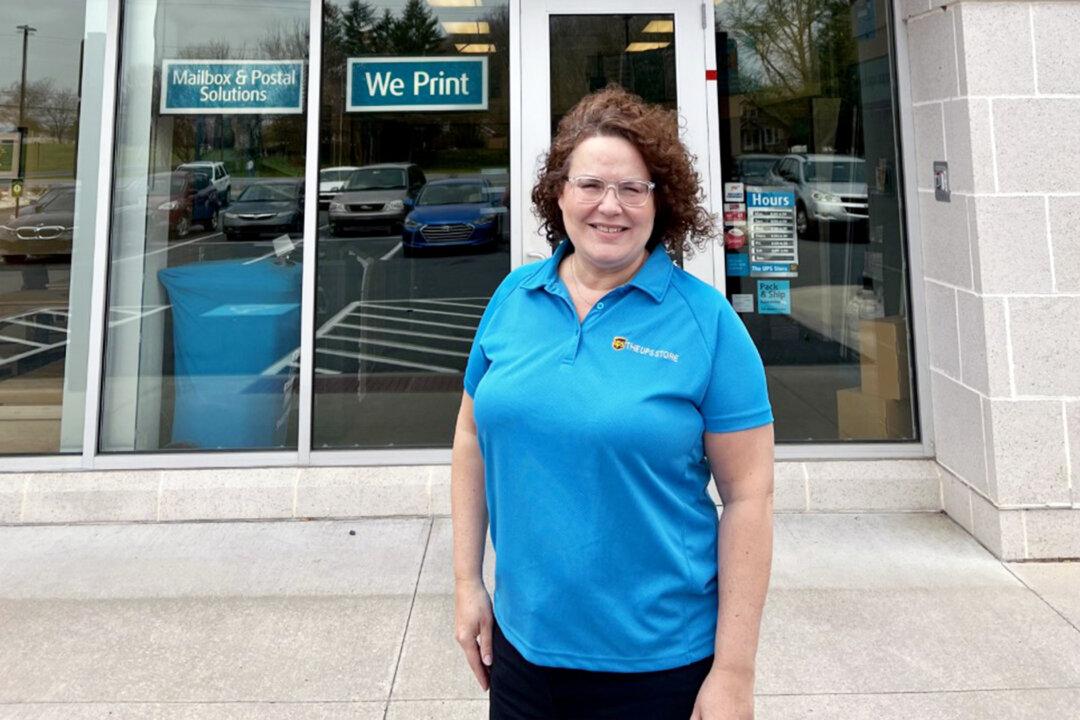Spotting red flags in an elderly customer’s shipping request, a UPS store owner stepped in, called a trusted relative, and saved the man from losing $12,000 to a scammer.
Julie and her husband, David Osborne, have owned and run a store in Lebanon, Pennsylvania, as part of the UPS franchise since 2011. Julie didn’t recognize Clyde Blount, who’s in his 90s, when he walked into her Quentin Road store at the end of March, but she could quickly tell something was wrong when he handed her a thick envelope.





